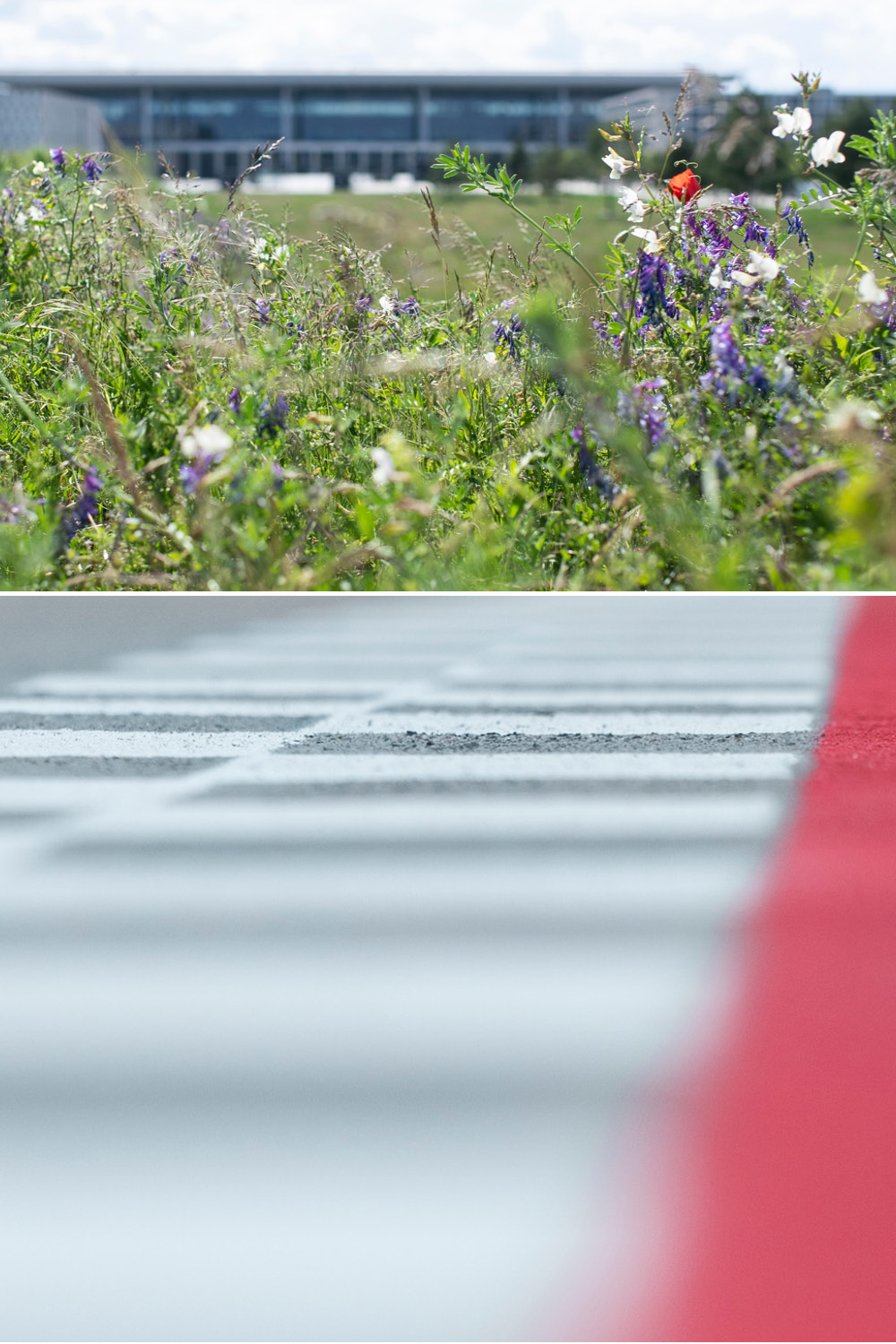Permanente Überwachung luftverkehrstypischer Schadstoffe
Tagtäglich starten und landen am BER hunderte Flugzeuge mit zehntausenden Reisenden und verbrennen sowohl beim Fliegen in der Luft als auch beim Rollen am Boden Kerosin. Es ist eines der zentralen Anliegen der FBB, den Ausstoß von Luftschadstoffen auf ein Mindestmaß zu reduzieren. Dennoch lässt sich beim Betrieb eines Flughafens die Entstehung von Luftschadstoffen nicht vermeiden.
Für die Emissionen sind in erster Linie die Flugzeugturbinen verantwortlich, die u. a. Kohlenmonoxid, Stickoxide, Schwefeldioxid, Kohlenwasserstoffe, Ruß und Kohlendioxid emittieren. Weitere Schadstoffquellen sind Bodenstromaggregate (ground power units) und Hilfstriebwerke der Flugzeuge (auxiliary power units), welche die stehenden Flugzeuge mit elektrischer Energie versorgen sowie Fahrzeuge wie Schlepper und Flughafenbusse. Hier, wie auch bei der An- und Abreise der Reisenden zum BER, wird die Elektromobilität auf lange Sicht einen deutlichen Beitrag zur Schadstoffreduzierung leisten. Auch die gute Anbindung des BER an Bus und Bahn trägt zur Vermeidung von Emissionen bei.

